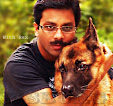Dog Handling in a Dog Show is a Big Art: Why Many Great Dogs Fail to Win?
Foremost among these reasons is the lack of proper training in show mannerisms. Additionally, a significant factor is the handler's inability to establish a connection with the dog, leading to inadequate coordination during the performance. This may be attributed to the handler's limited understanding of the particular dog's behavior and personality.
Winning in a dog show requires more than just having a great dog. The handler's ability to present the dog effectively and show off its strengths is just as important. Handlers must have a deep understanding of their dog's strengths and weaknesses, as well as how to showcase them in the ring. Additionally, a strong bond between the handler and the dog is essential for a successful performance, as it leads to better coordination and communication between them.
Training for dog shows typically involves teaching the dog proper show manners and preparing them for the various tasks and behaviors required in the ring. However, even with proper training, dogs may still struggle if their handler is unable to effectively present them. It's important for handlers to work closely with their dogs and develop a deep understanding of their personalities, preferences, and tendencies. This can help them tailor their approach to the dog and create a stronger connection, leading to a more successful performance in the ring.
If you are a dog handler preparing for a big dog show where the competition is tough due to the presence of many exceptional specimens and a very learned judge, here are some tips to help you perform at your best:
Thoroughly Prepare Your Dog: Ensure that your dog is adequately trained and prepared for the specific tasks and behaviors required in the competition. Spend ample time practicing and polishing their show manners to perfection.
Know Your Dog's Strengths and Weaknesses: Understand your dog's individual strengths and weaknesses, and focus on showcasing their unique qualities to impress the judge. Highlighting the dog's strengths can help set them apart from other competitors.
Focus on Presentation: Ensure that you present your dog in the best possible manner. This includes maintaining proper posture and grooming, as well as conveying a confident and composed attitude.
Develop a Strong Bond with Your Dog: Establish a strong connection with your dog to help facilitate better coordination during the performance. This can be achieved by spending quality time together and understanding your dog's personality and tendencies.
Stay Calm and Focused: Despite the pressure and competition, it's important to remain calm and focused during the performance. This can help you maintain composure and make rational decisions that can help set you apart from other competitors.
Respect the Judge: Show respect and professionalism towards the judge throughout the competition. Avoid confrontations or disagreements and focus on showcasing your dog's strengths to the best of your ability.
Handling a dog in a dog show is indeed a big art, and there are several reasons why:
Communication: Dog handlers need to communicate effectively with their dogs to ensure that they understand what is required of them in the show ring. This requires a deep understanding of the dog's behavior and temperament.
Presentation: Handlers need to present the dog in the best possible manner to showcase their strengths and unique qualities. This involves proper grooming, posture, and showmanship.
Attention to Detail: Handlers must pay attention to every detail, from the way the dog is standing to the way they move around the ring. This requires a keen eye for detail and a strong understanding of the standards required for the breed.
Coordination: Handlers need to coordinate their movements with their dog's movements to create a seamless performance. This requires an excellent sense of timing and a strong connection with the dog.
Confidence: Handlers need to exude confidence and composure during the performance to create a positive impression on the judges. This requires a lot of practice and preparation.
Professionalism: Handlers must conduct themselves in a professional and respectful manner, both towards the judges and other competitors. This includes following rules and regulations and showing good sportsmanship.
In conclusion, handling a dog in a dog show is a big art that requires a lot of skill, patience, and dedication. A successful performance requires the handler to communicate effectively with their dog, pay attention to every detail, showcase the dog's unique qualities, and exude confidence and professionalism.
Communication: Dog handlers need to communicate effectively with their dogs to ensure that they understand what is required of them in the show ring. This requires a deep understanding of the dog's behavior and temperament.
Presentation: Handlers need to present the dog in the best possible manner to showcase their strengths and unique qualities. This involves proper grooming, posture, and showmanship.
Attention to Detail: Handlers must pay attention to every detail, from the way the dog is standing to the way they move around the ring. This requires a keen eye for detail and a strong understanding of the standards required for the breed.
Coordination: Handlers need to coordinate their movements with their dog's movements to create a seamless performance. This requires an excellent sense of timing and a strong connection with the dog.
Confidence: Handlers need to exude confidence and composure during the performance to create a positive impression on the judges. This requires a lot of practice and preparation.
Professionalism: Handlers must conduct themselves in a professional and respectful manner, both towards the judges and other competitors. This includes following rules and regulations and showing good sportsmanship.
In conclusion, handling a dog in a dog show is a big art that requires a lot of skill, patience, and dedication. A successful performance requires the handler to communicate effectively with their dog, pay attention to every detail, showcase the dog's unique qualities, and exude confidence and professionalism.


























0 comments:
Post a Comment